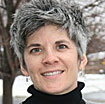Commentary on Psalm 96
Is it too idealistic to think that Christmas Eve is one of those times when so many of us (if not all) are ready and willing to do what this psalm exhorts us to do?
Sing to the Lord, bless his name, tell of his salvation, ascribe to the Lord the glory due his name, bring an offering, worship the Lord. That is precisely the atmosphere on Christmas Eve, isn’t it? At least, that is the atmosphere we want to create. The psalmist has put words to our deep desires.
Even the motivation for these actions is made clear as the psalmist gives us reason for wanting to sing, bless, tell, ascribe, and worship. This is, in fact, a good cue for the preacher. Remind us why, on this holiest of nights, we have this urge to sing to the Lord. Clarify for us why we gather to worship the babe born in Bethlehem. Give us words for the reason we are so full of gratefulness. Letting the words of the psalmist guide you, you discover, first, the Lord has done marvelous works for us. Like what? Tell us. What are those marvelous works of the Lord you have seen in and around your community?
Next, the Lord is great and is to be praised and revered above all other gods. What could this mean on a night like tonight? Who would ever think of revering any other god but the one true, incarnate Lord whose birth we have been waiting to celebrate? You know better than I do what, for your congregation, is competing for reverence; yes, even on this holy night. However, none of these competitors, not one, can hold a candle to what God Immanuel has done and is doing. He is the one, true Lord who, unlike all the other gods, made the heavens. Yes, the God whom we worship this evening made the heavens. Made them! The competition shrivels at the thought of it.
Perhaps you noticed what I have been doing. I have been telling you of the Lord’s salvation, declaring his glory. In like manner, do this psalm for your hearers. Once you get going, my guess is it will be difficult to stop.
Technically speaking, Psalm 96 is one of eight “YHWH is King” psalms (Psalms 93-100 – next week we will encounter another). Since these psalms were likely composed for use at festivals, it is appropriate we encounter them at Christmas. Psalm 96 contains three parts comprised of calls to praise God followed by motivation for praise. Note that the imperatives in the first part of the psalm are verbs of speaking, that is, verbal verbs (sing, tell, declare). The verbs in the latter part of the psalm are verbs of worship, that is, kinesthetic verbs (ascribe, bring an offering, come into the courts, worship). In other words, eventually, our whole beings will be involved.
Whether or not this text is addressed explicitly in your sermon, the psalm nudges you toward creating a time of worship which is both verbal and kinesthetic. You may have visitors who, along with the rest of us, have a sense of wonder this night, but are only ready to put their heads in, and then maybe their right hand. By the end of worship, how might they too put their whole selves in? (In congregations I attend, generally we do not get to the, “And shake it all about.” Pardon the hokey moment.)
Not only does the psalmist call our whole beings, voice and body alike, to praise, but the whole creation joins in declaring praises to God and worshiping God. Actually the psalm begins with this invitation for all of creation to rejoice, “O sing to the Lord a new song, all the earth.” But, like I did when I first read this psalm (even though I have heard it a hundred times), you may have missed it. “Sing to the Lord all the earth!” Not just the earth’s left boot (Italy) or palm (Michigan), but the whole of creation will sing. Imagine the chorus comprised of the heavens, the earth, the sea and all that fills the sea, the field, all the crops, cattle in the field, the trees. Help those who are gathered hear creation’s verbal declarations (the bellows and the creaks) and see their kinesthetic acts of praise (bending with the wind, growing with the sunshine). This psalm is a call to proclamation and praise for all the world/all of creation.
Not even the word, judgment, in the psalm can jar us this night. The angels’ advice in Luke 2, “Do not be afraid,” is well-justified, for this newborn will judge the world with righteousness. He will judge the peoples with his truth; not a truth, or our truth, but with his truth. Oh, to be judged so fairly.
What the psalmist does not know is that we are not apt to declare, “He is coming.” Instead, on this holiest of nights, we will declare, “He is here!”

December 24, 2012